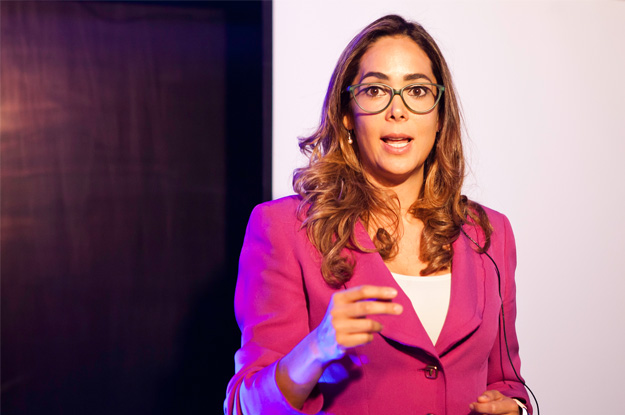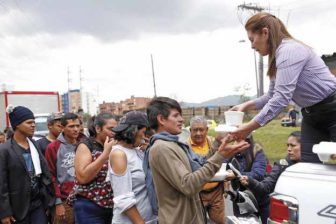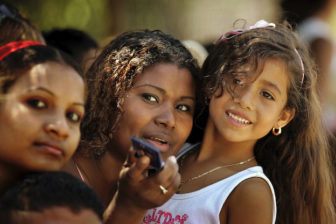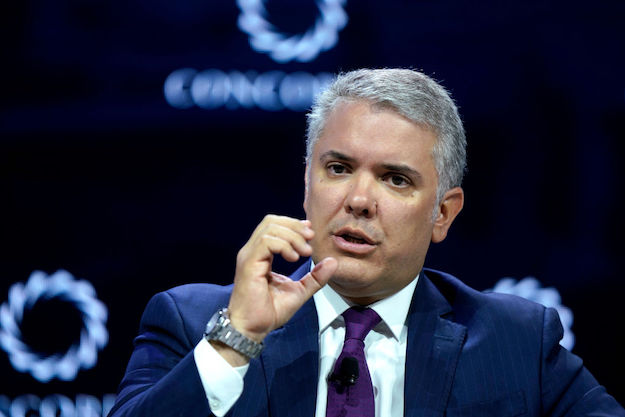When thousands of Colombians protested on August 10 to demand the resignation of the country’s openly gay education minister, few saw any greater political significance. But as the world struggles to understand why Colombians voted “No” on Sunday to a peace deal with the Revolutionary Armed Forces of Colombia (FARC) rebel group, the seemingly unrelated demonstration is now being seen in a new light.
“That march in August was when the ‘Yes’ vote began to lose and the ‘No’ vote began to win,” said Wilson Castañeda Castro, director of Caribe Afirmativo, one of Colombia’s leading LGBT advocacy groups, which endorsed the peace deal. “Peace didn’t lose this past Sunday – we simply learned the results then.”
The controversy began earlier this year when an unfinished draft of a teaching handbook, produced by the education ministry in tandem with international agencies including UNICEF, was published online. One sentence sparked particular fury: “One isn’t born a man or a woman, but rather learns to be one, according to the society and age in which they grow up,” it read. That passage, along with false versions of the handbook and other misinformation, circulated widely on social media. Critics accused then-Education Minister Gina Parody, a lesbian, of trying to indoctrinate students with “gender ideology,” a term used by many conservative groups and leaders throughout Latin America. Parody quickly became the center of a smear campaign, while others argued children needed to be protected from same-sex marriage.
That was when the lines between the handbook controversy and the peace deal vote started to blur. On Twitter, former president Álvaro Uribe called the proposed language an “abuse to minors and a disrespect to nature and to the family.” Uribe was, of course, also the main leader of the “No” campaign against the agreement with the FARC. His 4.5 million Twitter followers, most of them socially conservative and already highly mobilized because of the imminent FARC plebiscite, now had the handbook issue front and center. The march against Parody occurred just two days later; turnout was highest in the cities of Barranquilla, Bogotá and Bucaramanga, which drew an estimated 25,000 to 30,000 people.
Then, on August 30, in a decision that historians may dissect for years to come, Santos temporarily removed Parody from the education ministry – and made her a coordinator of the “Yes” campaign for the FARC deal. This decision, which came less than three weeks after the march, baffled even some Santos allies who noted she was “one of the government’s most unpopular officials.” Sensing opportunity, opponents of the FARC agreement began to argue it was another effort to undermine conservative ideas of gender and family. Articles and blogs surfaced arguing that the historic inclusion of gender and LGBTI status in the peace deal’s provisions was proof of this ulterior agenda. In a video posted to YouTube days before the peace deal plebiscite, former Inspector General Alejandro Ordóñez pointed to negotiators’ discussion of gender – specifically footage of lead negotiator Humberto de la Calle citing the differences between sex and gender during talks in Havana – as evidence that the government and the FARC “are using peace as an excuse to impose the ideology of gender.”
For Claudia López, Colombia’s only openly LGBT senator and a supporter of the peace deal, antagonism from religious leaders toward the LGBT population was one of three key reasons for the deal’s defeat. She told AQ that she sees the controversy over gender as part of a larger cause of evangelical Christian churches and more radical sectors of the country’s Catholic population to strip LGBT Colombians of their rights, “disguised as a defense of the traditional family.”
“They used this cause in the campaign to say that the peace accords were against the family and in favor of the LGBT population,” López said. “Because the accords recognize that the situation for women and LGBT people (during the conflict) has been different, and so reparations for women and LGBT victims should have a unique focus.”
Some representatives of the right have echoed López’s view.
“Many Catholic groups like ours promoted the ‘No’ vote because the ideology of gender is introduced throughout the accords. Not one word about the family was mentioned,” Jesús Magaña, director of Unidos Por la Vida de Colombia (United Pro-Life Colombians), told ACI Prensa, a Catholic news agency. “On the other hand, there are mentions of the perspectives of gender, women, boys, girls and the LGBTI community throughout the accords.”
In the end, the “No” campaign prevailed by just 54,000 votes. Most observers agree that the “No” did a better job of turning out their voters – in part because they were mobilized by a wide range of causes.
Castañeda and other gay Colombians are now left wondering if the result spells bad news for groups like Caribe Afirmativo that are working to guarantee the rights of LGBT citizens. There have already been signs of fallout since August, with Parody resigning this week. López, meanwhile, has found herself fighting a bill in the Senate that would send to a national referendum the option to prevent everyone except heterosexual married couples from adopting children.
The issue of gender has already come up, albeit implicitly, in discourse over the peace deal’s renegotiation. Uribe, in his first remarks after the plebiscite, stressed “the need to encourage family values, without putting them at risk, family values defended by our religious leaders and moral shepherds.”
Should LGBT groups in Colombia be preparing for an intensified struggle for inclusion? It’s hard to tell, especially in a country where things seemed much clearer just a week ago. Castañeda seems hopeful.
“We may have lost but we’re not defeated.”
—
O’Boyle is an editor for Americas Quarterly









